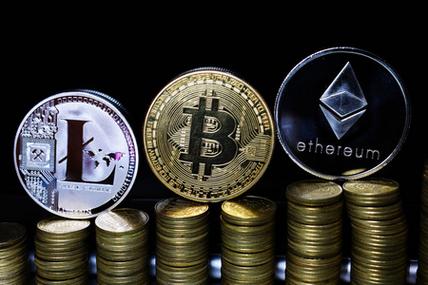Understanding ETH, LTC, and BTC: A Comprehensive Guide
When it comes to the world of cryptocurrencies, Ethereum (ETH), Litecoin (LTC), and Bitcoin (BTC) are three of the most prominent and widely discussed digital assets. Each of these coins has its unique features, history, and market dynamics. In this article, we will delve into the details of ETH, LTC, and BTC, providing you with a comprehensive understanding of these digital currencies.
Bitcoin (BTC): The King of Cryptocurrencies
Bitcoin, often referred to as BTC, is the first and most well-known cryptocurrency. Created by an anonymous person or group of people using the pseudonym Satoshi Nakamoto in 2009, Bitcoin introduced the concept of a decentralized digital currency. Its primary purpose is to serve as a digital gold, a store of value that is not controlled by any government or central authority.

| Feature | Bitcoin (BTC) |
|---|---|
| Market Cap | Over $500 billion |
| Supply | 21 million |
| Block Time | 10 minutes |
Bitcoin’s supply is capped at 21 million coins, which makes it deflationary in nature. Its decentralized nature and limited supply have contributed to its popularity and value over the years. Bitcoin has also been a pioneer in the development of blockchain technology, which is the underlying technology for many other cryptocurrencies.
Ethereum (ETH): The Smart Contract Platform
Ethereum, often referred to as ETH, was launched in 2015 by Vitalik Buterin, a Russian-Canadian programmer. Unlike Bitcoin, Ethereum is not just a digital currency; it is a blockchain platform that enables the creation of decentralized applications (DApps) and smart contracts. This has made Ethereum a popular choice for developers looking to build innovative projects in the crypto space.
| Feature | Ethereum (ETH) |
|---|---|
| Market Cap | Over $200 billion |
| Supply | 117 million |
| Block Time | 15-20 seconds |
Ethereum’s blockchain is capable of processing more transactions per second than Bitcoin, thanks to its sharding technology. The platform has also faced challenges, such as the 2016 DAO hack and the 2020 Ethereum 2.0 upgrade, which aimed to improve scalability and reduce energy consumption.
Litecoin (LTC): The Silver to Bitcoin’s Gold
Litecoin, often referred to as LTC, was launched in 2011 by Charlie Lee, a former Google employee. It was designed to be a faster and more scalable alternative to Bitcoin. Litecoin has a shorter block time of 2.5 minutes, which allows for faster transaction confirmation times. It also has a larger supply cap of 84 million coins, making it more inflationary than Bitcoin.

| Feature | Litecoin (LTC) |
|---|---|
| Market Cap | Over $10 billion |
| Supply | 63 million |
| Block Time | 2.5 minutes |
Litecoin has also been involved in various projects and partnerships, such as the integration of its blockchain with the Lightning Network, a second-layer scaling solution for Bitcoin. These developments have helped to increase Litecoin’s adoption and value over the years.
Conclusion
ETH, LTC, and BTC are three of the most significant cryptocurrencies in the market. Each of these coins has its unique features and advantages, making them popular among investors and developers. Whether you are looking to invest in digital currencies or build innovative projects, understanding the nuances of ETH
